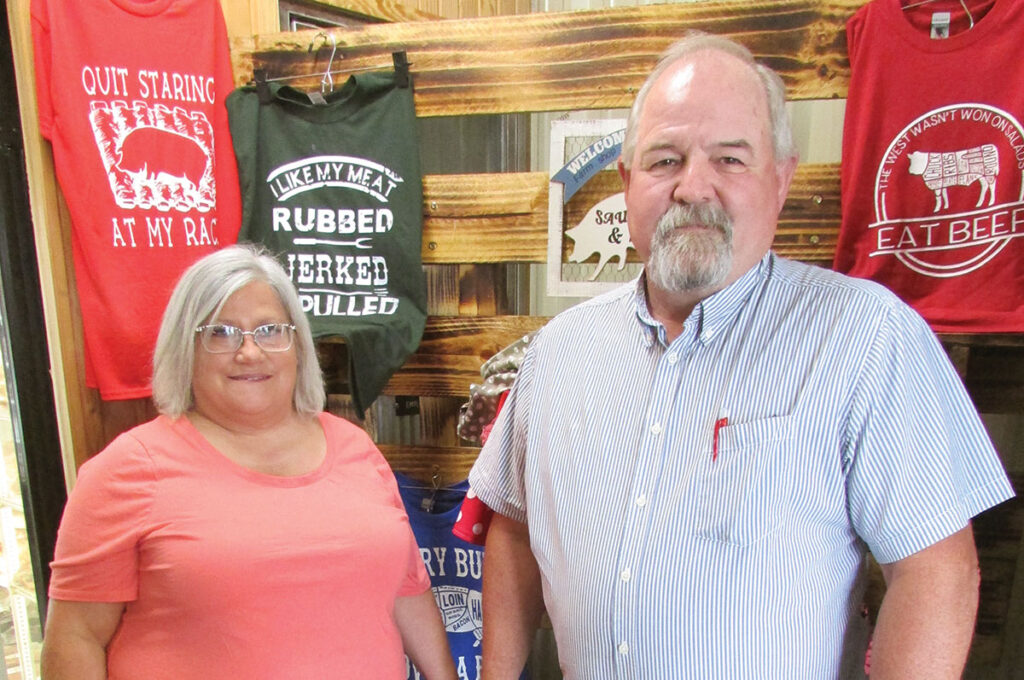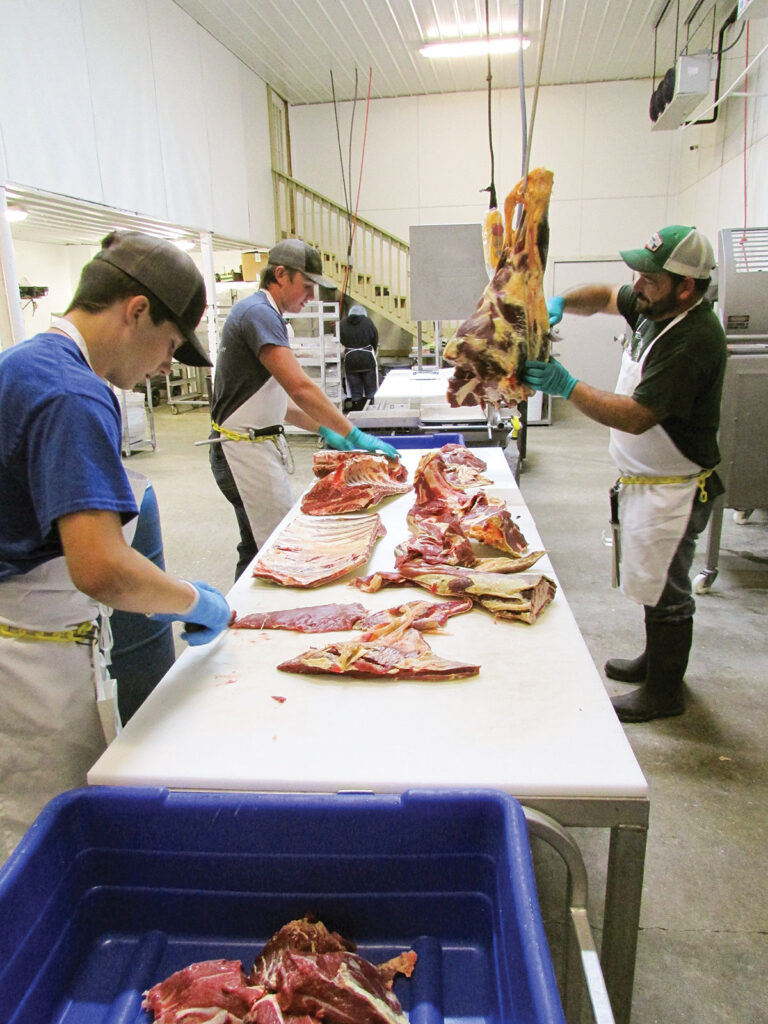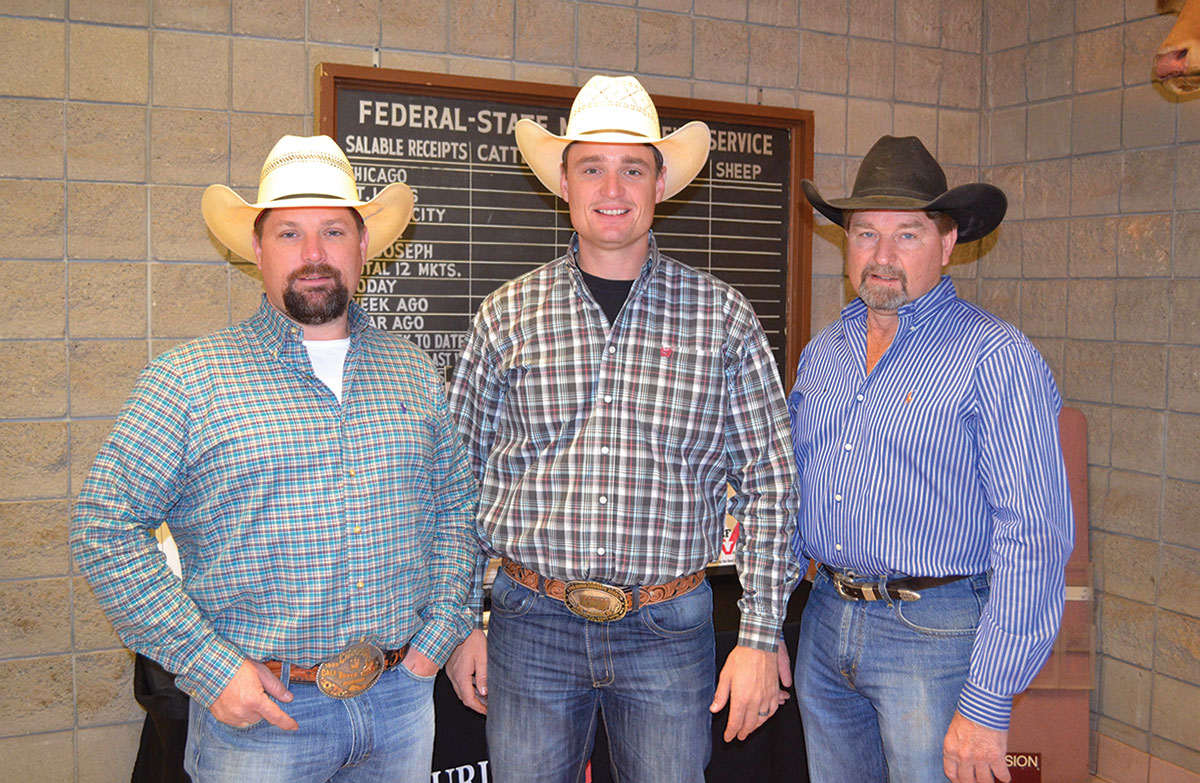
Scott and Sheila Long specialize in processing organically-raised animals, as well as USDA-inspected cuts
CABOOL, MO. – Five years prior to his retirement as the Cabool High School agriculture teacher in 2015, where he taught meat science and led a meat-judging team, Scott Long and his wife Sheila had the idea that a meat processing facility in their small hometown would provide a much-needed service.
“Wait times here were long to get livestock into a processor,” Scott said. “Our son raised hogs for a time, and was told he would have to wait three months before the hogs could be butchered.”
For farmers and ranchers in Texas County, getting livestock to a processor also meant a lengthy drive, said Scott, who raises cattle of his own.
“We wanted to build it in Cabool,” Scott said. “Not only because of the need, but we wanted to contribute to the economy of the community. This is where we live and where we raised our kids – all five of them.”
“My family has been blessed in this county,” he said, “and we like to give back.”
In 2011, when they were building their facility, which they named Cabool Kountry Meats, the Longs looked at ways to set their business apart from other processors. Part of that difference involved inspection standards.
“We started up, initially, as a state-inspected facility,” Sheila said. “Not long afterward, we became a federal USDA-inspected facility. Since we’re only an hour north of Arkansas, it made a huge difference in the number of clients we were able to serve.
“Many of the rules for state and USDA inspections are similar, but upgrading to the federal requirements allowed us to slaughter animals from outside of Missouri,” Sheila added.
A niche market the Longs chose to break into was organic meat processing, a distinction which set their business apart when they began operating in 2011.
“We were one of the only organic processors within several hundred miles, so we had clients bringing their organically-fed beef in to be processed from as far away as Georgia,” Sheila explained. They are now the only organic processor in Missouri, Sheila added.
Becoming an organic processor meant becoming certified by OneCert, an agency in Nebraska that provides organic certification for world producers. Organic processing means observing certain protocols, such as slaughtering organically-fed livestock prior to slaughtering other animals. Organic rinses are then used on the carcasses, which are hung separately from other carcasses in the cooler, to avoid co-mingling.

But, the Longs say organic processing makes up a small percentage of their overall business.
When they opened in 2011, the majority of their business was custom processing for farmers who just wanted to put some beef or pork in their freezers for their own purposes.
“Now, our largest market is USDA-inspected meat for resale,” Scott said. “It comprises about 80 percent of our business.”
The USDA-inspected market is driven by the recent proliferation of farmers’ markets and on-farm stores, which require that meat be inspected, Scott said.
The Longs typically slaughter six to eight head of cattle a day, Monday through Thursday, and about six hogs a week.
“We have occasional requests to slaughter goats,” Scott said.
Sheila said they’ve seen an increase in requests for sheep slaughter, which she attributes to an influx of new residents who are raising sheep.
“More people are asking for lamb meat in our resale shop, too,” she said.
The Longs’ resale meat shop includes beef, pork, chicken, lamb – even catfish – although the chicken and catfish are purchased from distributors, Sheila said.
Specialties of the Longs’ market include custom-made sausages and bratwurst in flavors like beer-apple and mango-habanero.
The Longs are members of the Missouri Association of Meat Processors, an organization that helped them get their business off the ground.
“In turn, we let people who are wanting to start their own market come in and learn from us,” Sheila said.
Scott said one critical piece of advice they were initially given was to make the processing plant larger than the space they believed they’d need.
“That advice served us well, since business took off much more quickly than we expected,” he said.







